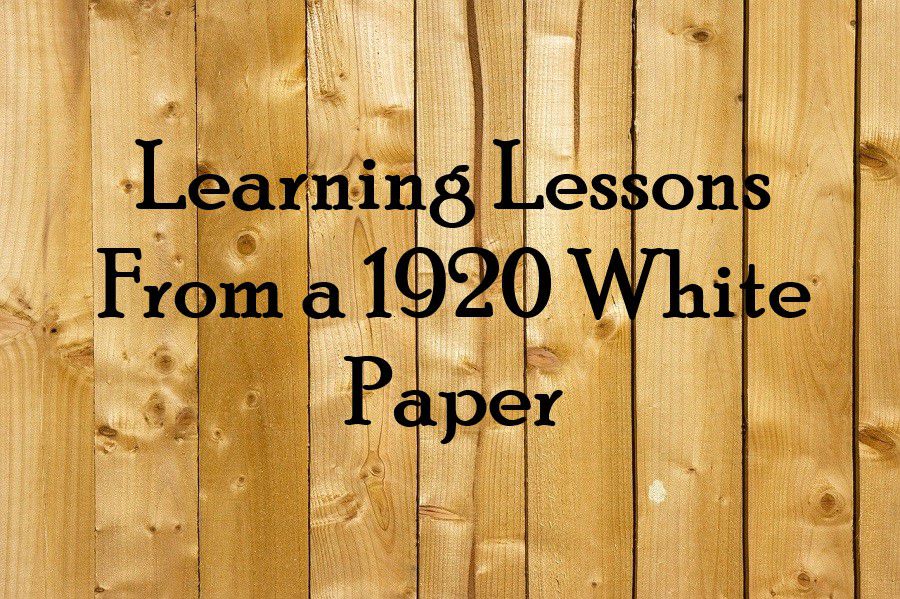At the turn of the 20th century, English archaeologist, writer, and political figure Gertrude Bell played a significant role in the British colonial rule of Jordan and Iraq. She was part of an elite group of officials whose efforts dramatically shaped the Middle East for decades to come. We can learn a lot from this woman at many different levels.
Indeed, we can even learn lessons from a white paper written by Bell in 1920. That white paper, entitled Review of the Civil Administration in Mesopotamia, was an incredibly important document that addressed many of the most important administrative questions of the day. It touched on everything from penal codes to the court system colonial rulers would adopt.
Interestingly enough, the paper was warmly received and greatly applauded by both houses of Parliament even though Gertrude Bell did not get the public credit she was due. Any mention of Bell in relation to the white paper was cursory at best, insulting at worst. Still, there are two lessons we can learn from her paper.
Content Is More Important
The first and most important lesson is that content is king – even for white papers. It is unfortunate that Gertrude Bell was the victim of the patriarchal system of the day but, in the end, the content she produced ended up being transformational. She may not have been given the proper public credit for her insight, hard work, and very worthwhile proposals, but the words she penned achieved the goals she set forth.
White paper writing services need to follow Bell’s example and concentrate on presenting ironclad content. The whole purpose of a white paper is to establish authority and influence decisions. That cannot be accomplished if a writer is more concerned about receiving credit than putting forth solid arguments.
Only One Audience Matters
The second lesson to be learned from Bell’s 1920 white paper is that only one audience matters: the audience at whom the content is targeted. In Bell’s case, her audience was Parliament. She succeeded in communicating what they needed to know effectively and concisely. They acted on the information she provided.
Bell’s biggest frustration was that the media was completely fixated on the fact that a woman authored the white paper. Media reports gave very little attention to the content of the paper itself, focusing almost exclusively on the social implications of a woman having so much influence in government.
What does it matter what the media thinks? What does it matter what anybody outside of the target audience thinks? When it comes to white papers, the only audience that matters are the people who will be making decisions based on the content. Writers should focus all their efforts in that direction. Knowing your audience and concentrating on them always makes for better writing and more effective white papers.
Gertrude Bell left an amazing legacy that we are still reaping benefits from today. Learning a few lessons from her 1920 white paper is but one little part of a much bigger frame of influence.
